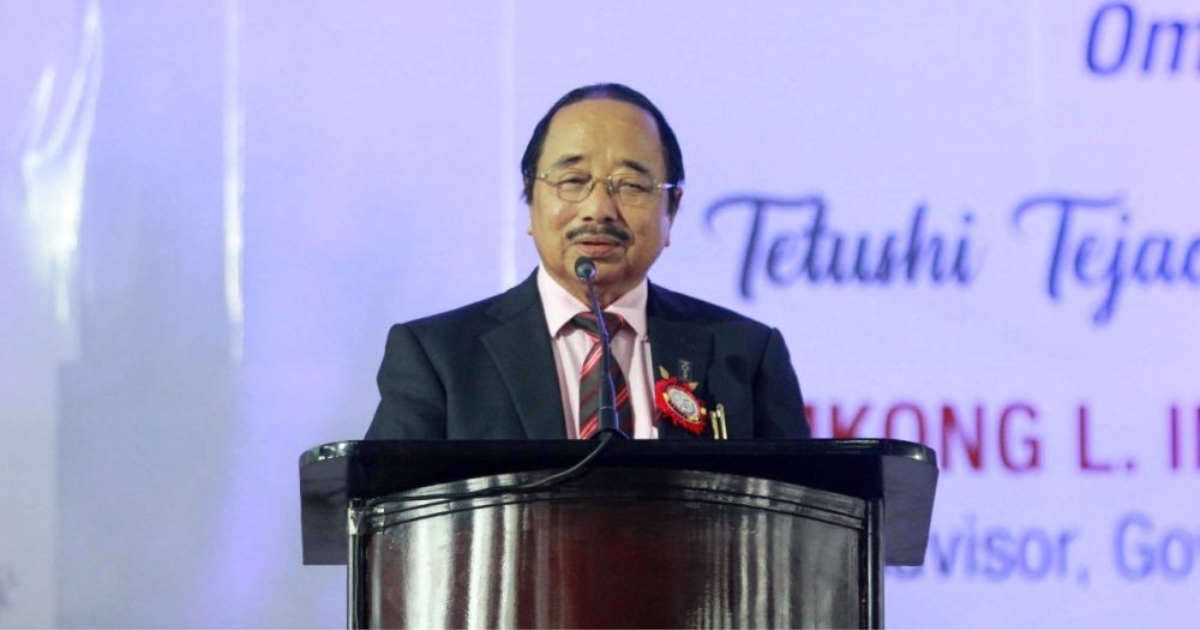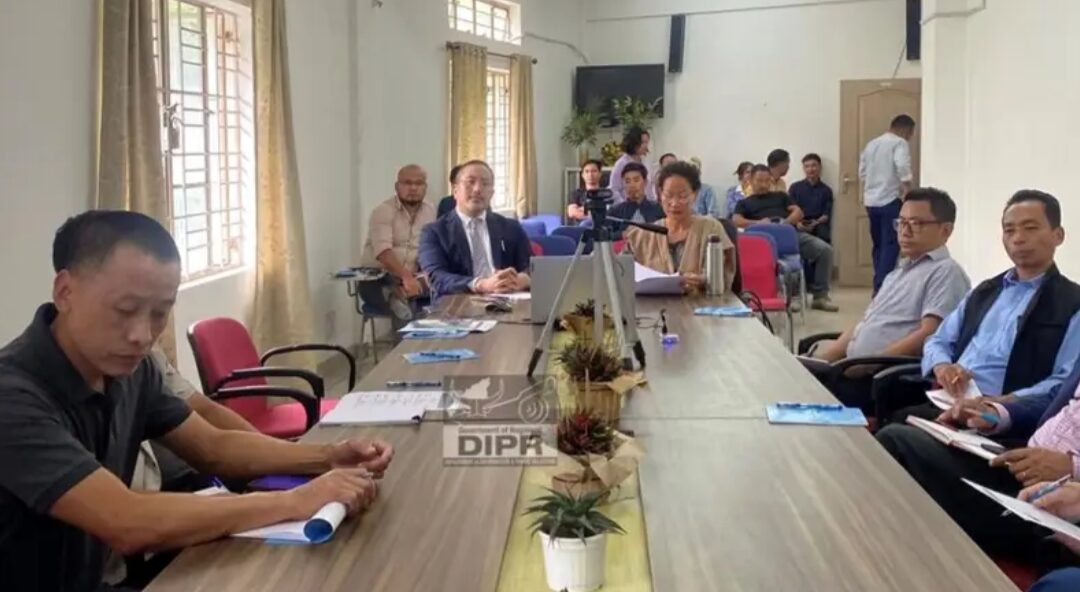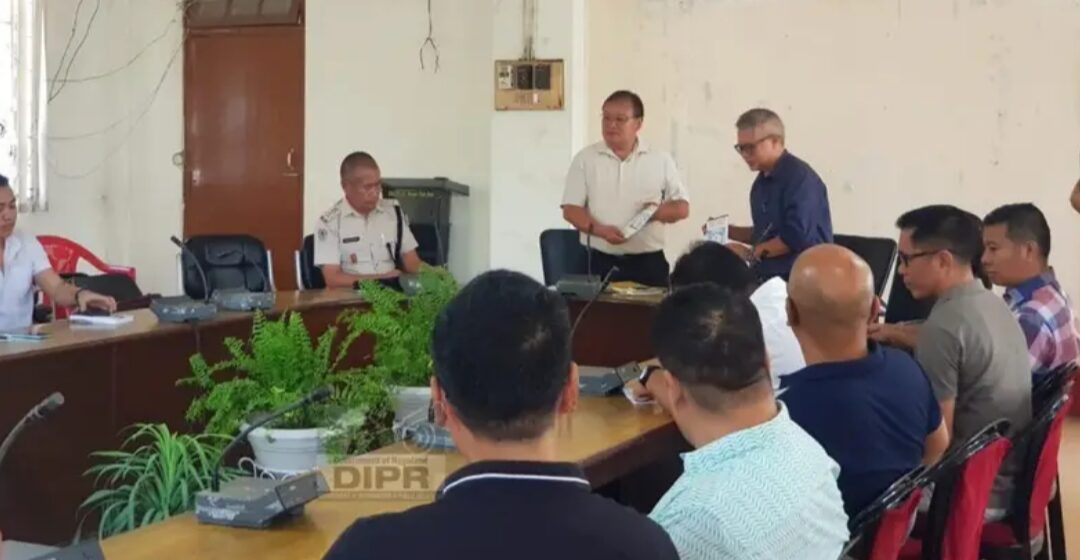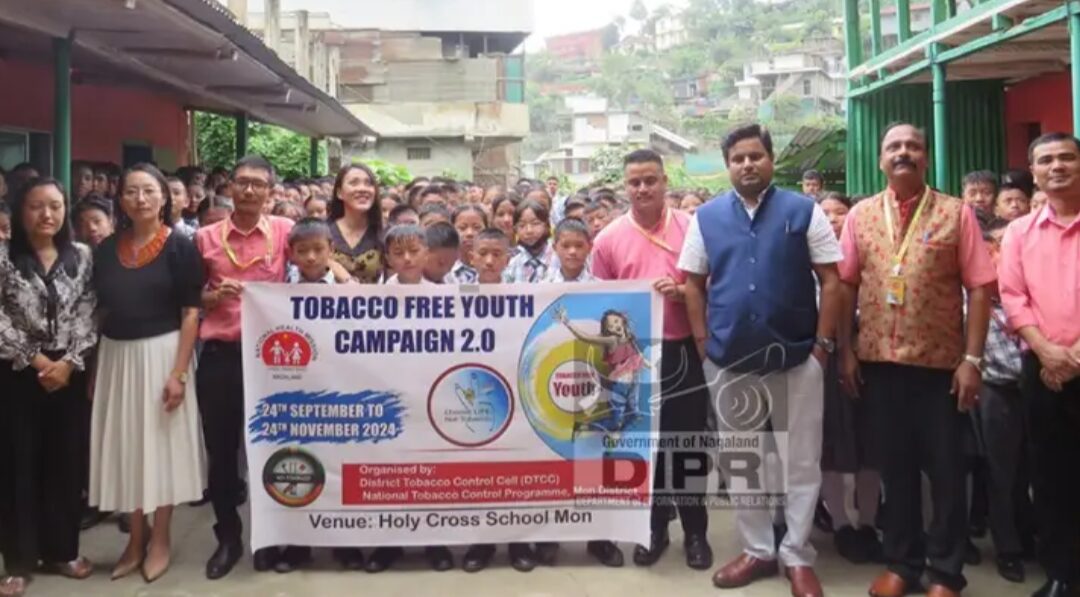Imkong Imchen, an Advisor for Information & Public Relations, Soil & Water Conservation, has sparked outrage among Pangsha civil society organisations (CSOs) over his remarks supporting the scrapping of the Free Movement Regime (FMR) along the Indo-Myanmar border.
The Pangsha Public Organisation (PPO) and the All Pangsha Students’ Union (APSU) have vehemently condemned Imchen’s statements, arguing that they lack understanding of the complex dynamics at play in the border region.
The FMR, a key component of India’s Act East policy, allows tribes living along the border to travel up to 16 km inside the other country without a visa, facilitating local trade, access to education and healthcare, and strengthening diplomatic ties between India and Myanmar.
However, the Indian government’s recent discussions to potentially scrap the FMR have raised concerns among border communities. Pangsha CSOs argue that removing the FMR would disrupt the lives of countless individuals and undermine the longstanding cultural, social, and economic ties between communities on both sides of the border.
Also Read: Pughoboto farmers learn organic cultivation under MOVCD
They point to the historical context of the border’s demarcation, which was done without consulting indigenous people, undermining their democratic rights and land ownership.
The CSOs have called on Imchen to educate himself on the subject matter before making further public statements, emphasising the need for accuracy and integrity in fostering constructive dialogue for the benefit of Nagas within and beyond the border.
Threat to Socio-Economic and Cultural Fabric
The Nokhu Range Public Organisation (NRPO) and Nokhu Range Students’ Union (NRSU) have also labelled Imkong Imchen’s statement as “ignorant and immature,” echoing the sentiment that the potential scrapping of the FMR threatens the socio-economic and cultural fabric of border communities.
The FMR has been a lifeline for many, facilitating economic activities and maintaining familial and cultural ties across the border. Any decision to modify or scrap the FMR must be made with careful consideration of its impact on the lives of those directly affected.
Also Read: Nurses undergo comprehensive CPHC training in Nagaland
Balancing National Security and Community Rights
The controversy highlights the delicate balance between national security concerns and the preservation of the rights of border communities. While the Indian government may have legitimate reasons for considering changes to the FMR, it is crucial that the voices of those most affected by such decisions are heard and taken into account.
The backlash against Imchen’s remarks shows the need for a more empathetic and informed approach to policy-making, one that takes into account the complex realities of life along the Indo-Myanmar border.
As the debate continues, it is essential that all stakeholders work together to find a solution that protects both national interests and the well-being of border communities.
Also Read: India’s rubbish reckoning: A journey through the trash
A Call for Constructive Dialogue
The Pangsha CSOs believe Imchen’s statement seeks to prevent Nagas from uniting, which they find unacceptable. They have called for a more constructive dialogue that brings together all parties involved, including government officials, civil society organisations, and representatives of border communities.
Only through open and honest communication can a sustainable solution be found that addresses the concerns of all stakeholders. It is time for leaders like Imkong Imchen to listen to the voices of those they represent and work towards a future that upholds the rights and dignity of all individuals, regardless of which side of the border they call home.




